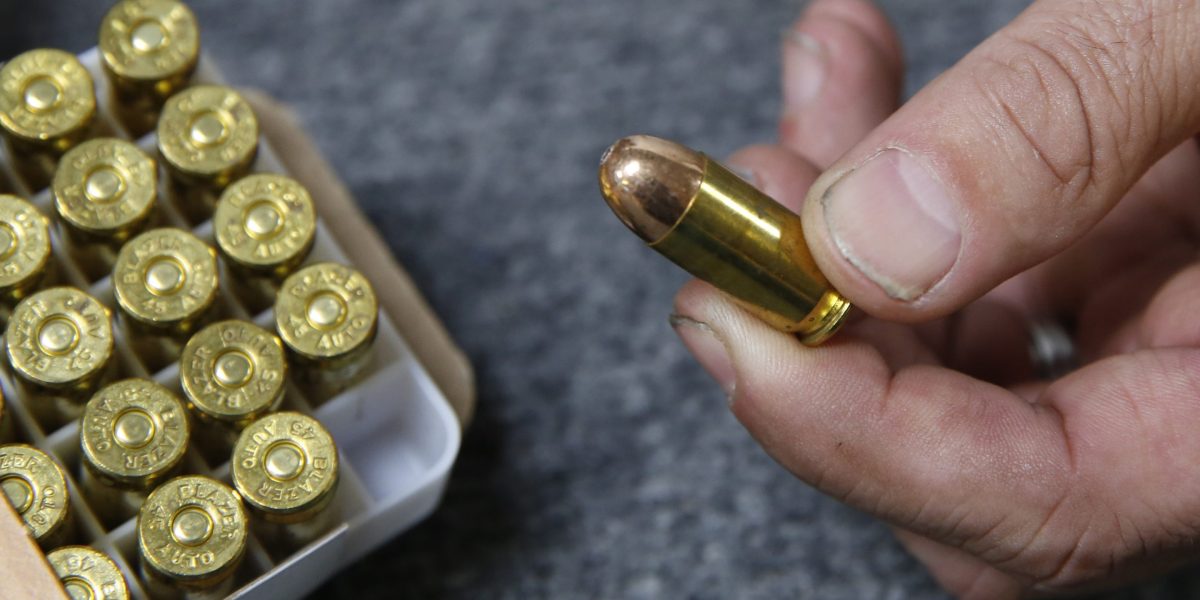A landmark ruling has emerged from the 9th U.S. Circuit Court of Appeals, declaring California's law that mandated background checks for ammunition purchases unconstitutional. This pivotal decision emphasizes
Did You Know
There’s a species of jellyfish that’s immortal.
?
AD
the significance of the Second Amendment and individual liberties. The court's ruling indicated that requiring background checks infringes on the inherent right of citizens to own and bear arms, reinforcing a judicial perspective that prioritizes personal freedoms over regulatory measures aimed at curbing gun violence.
The controversial law, which was the first of its kind in the United States, was passed by voters in 2016 amidst increasing concerns over gun-related incidents. Advocates for gun control viewed the legislation as a critical step toward enhancing public safety in a state known for its stringent firearm regulations. However, the court's decision underscores the challenges faced by lawmakers in attempting to impose limits on gun ownership rights, suggesting that efforts to regulate ammunition purchases may be met with formidable legal obstacles.
This ruling not only upholds a previous decision but also sets a significant precedent for future firearm legislation in California and beyond. As the legal landscape continues to evolve, the implications of this ruling may resonate across the nation, affecting how states approach the intricate balance between ensuring public safety and respecting the constitutional rights of individuals. In a time of heightened scrutiny over gun control measures, this outcome serves as a reminder of the complexities surrounding gun ownership rights in America.
Q&A (Auto-generated by AI)
What is the Second Amendment?
The Second Amendment to the United States Constitution, ratified in 1791, states: 'A well regulated Militia, being necessary to the security of a free State, the right of the people to keep and bear Arms, shall not be infringed.' This amendment is often cited in debates over gun rights and gun control, as it protects an individual's right to possess firearms. Its interpretation has been the subject of numerous legal battles, particularly regarding the balance between individual rights and public safety.
How do background checks work?
Background checks are processes used to verify the criminal history, mental health status, and other relevant information of individuals seeking to purchase firearms. In the U.S., federal law mandates background checks for purchases from licensed dealers, but not for private sales. These checks aim to prevent firearms from falling into the hands of individuals prohibited from owning them, such as convicted felons or those with restraining orders. In California, the now-struck-down law required checks for ammunition purchases, a first in the nation.
What led to the California law's creation?
The California law requiring background checks for ammunition purchases was enacted in response to rising concerns over gun violence and mass shootings. Approved by voters in 2016, it aimed to enhance public safety by ensuring that only individuals legally permitted to own firearms could obtain ammunition. Advocates believed that by regulating ammunition sales, the law would help reduce gun-related crimes and improve accountability among gun owners.
What are the implications of this ruling?
The appeals court ruling declaring California's ammunition background check law unconstitutional has significant implications for gun control efforts in the state and across the nation. It reinforces the interpretation of the Second Amendment as protecting individual gun ownership rights, potentially hindering future legislation aimed at regulating firearms or ammunition. This ruling may embolden gun rights advocates and challenge states' abilities to implement similar safety measures, impacting the ongoing debate over gun violence and regulation.
How have similar laws fared in other states?
Similar laws requiring background checks for ammunition or firearms have seen varied success across the United States. Some states, like New York and New Jersey, have implemented strict gun control measures, including background checks, while others have resisted such regulations. For example, Massachusetts has a comprehensive gun control framework, but challenges to its laws have arisen. The effectiveness and legality of these measures often depend on political climates and judicial interpretations of the Second Amendment.


















